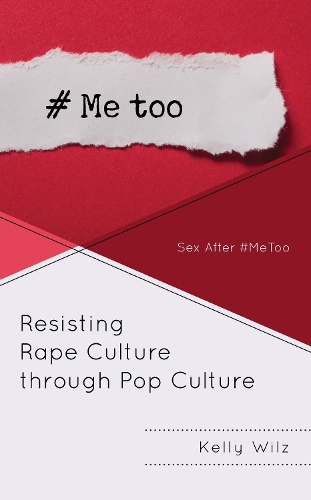
Resisting Rape Culture through Pop Culture: Sex After #MeToo
(Hardback)
Publishing Details
Resisting Rape Culture through Pop Culture: Sex After #MeToo
By (Author) Kelly Wilz
Bloomsbury Publishing PLC
Lexington Books
9th December 2019
United States
Classifications
Professional and Scholarly
Non Fiction
Gender studies, gender groups
Media studies
306.77
Physical Properties
Hardback
202
Width 160mm, Height 235mm, Spine 21mm
481g
Description
Resisting Rape Culture through Pop Culture: Sex After #MeToo provides audiences with constructive models of affirmative consent, tender masculinity, and pleasure in popular culture that work to challenge toxic dominant and hegemonic constructions. While numerous scholars have illustrated the many ways mediated culture shape social understandings of sexual violence, this book analyzes texts that might serve to resist rape culture. This project locates how these texts manufacture cinematic or televisual narratives and in turn work to create new realities that encourage cultural and social change. Kelly Wilz analyzes the ways in which we, as a culture, tend to understand sex through visual media and dominant cultural myths, while highlighting productive texts which might serve as a possible corrective to the ways in which sex is ritualized by rules that legitimize violence. Through the lens of productive criticism, Wilz examines how language and dominant ideologies around rape culture and rape myths reinforce systemic violence, and how visual texts might work to reimagine how we might disrupt those ideologies and create new ways to engage in conversations around intimacy and violence. By centering the voices within the #MeToo movement, who actively work to de-normalize sexual assault and abuse, these models provide a useful counter to the deluge of dehumanizing narratives about survivors and sexualized violence. Scholars of pop culture, women's studies, media studies, and social justice will find this book particularly useful.
Reviews
Resisting Rape Culture through Pop Culture is a powerful examination of the ways in which popular culture can offer resistance to dominant culture by offering positive representations of masculinity and sexuality. Scholars of popular culture, media studies, critical cultural studies and women's and gender studies will find this book useful not only in the way that it engages the wealth of literature relevant to the #MeToo movement, but also in the way that it advocates for representation as a means of resistance.
-- "The Journal of Popular Culture"Author Bio
Kelly Wilz is associate professor of communication studies at the University of Wisconsin-Stevens Point.
